Best AI tools for< Rerank Documents >
4 - AI tool Sites
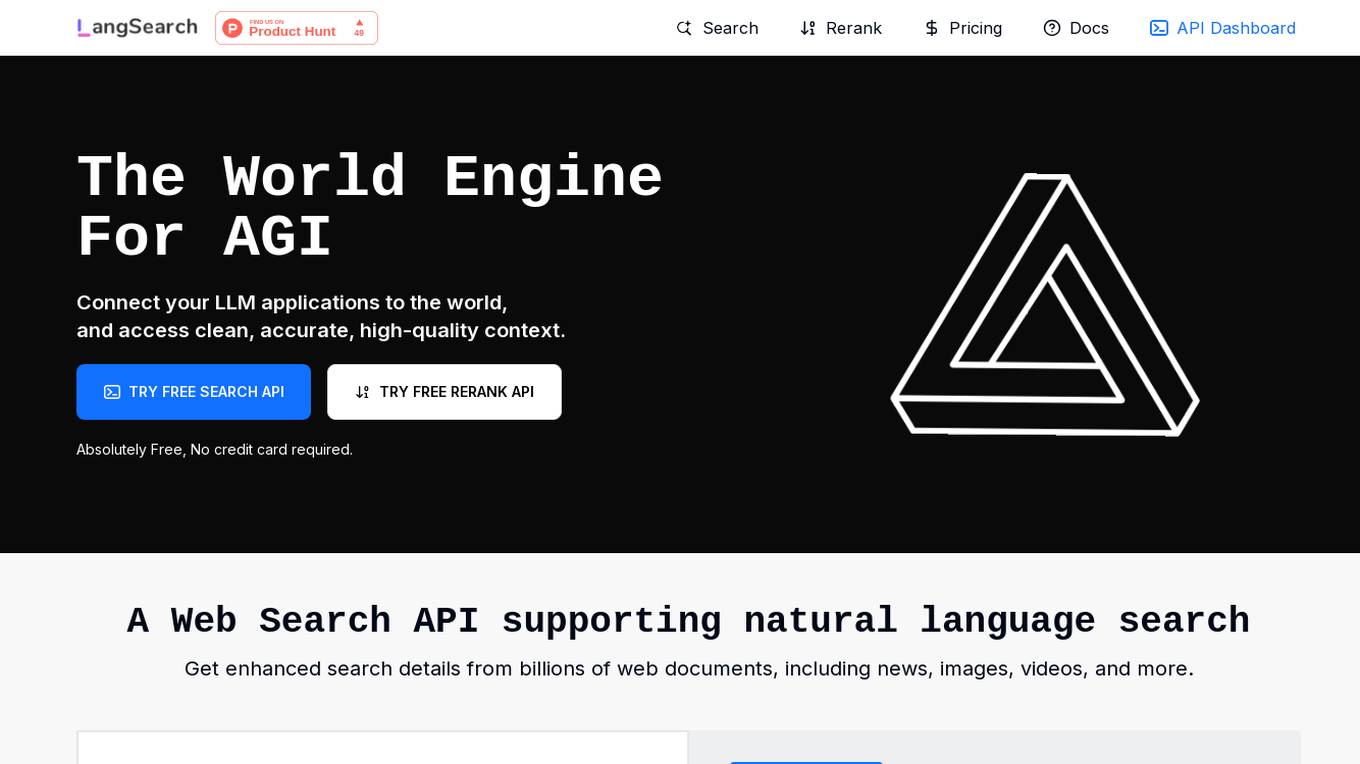
LangSearch
LangSearch is an AI tool that offers a free Web Search API and Rerank API, serving as the World Engine for AGI. It allows users to connect their LLM applications to access clean, accurate, high-quality context from billions of web documents, including news, images, videos, and more. The tool supports natural language search and provides enhanced search details for various content types.
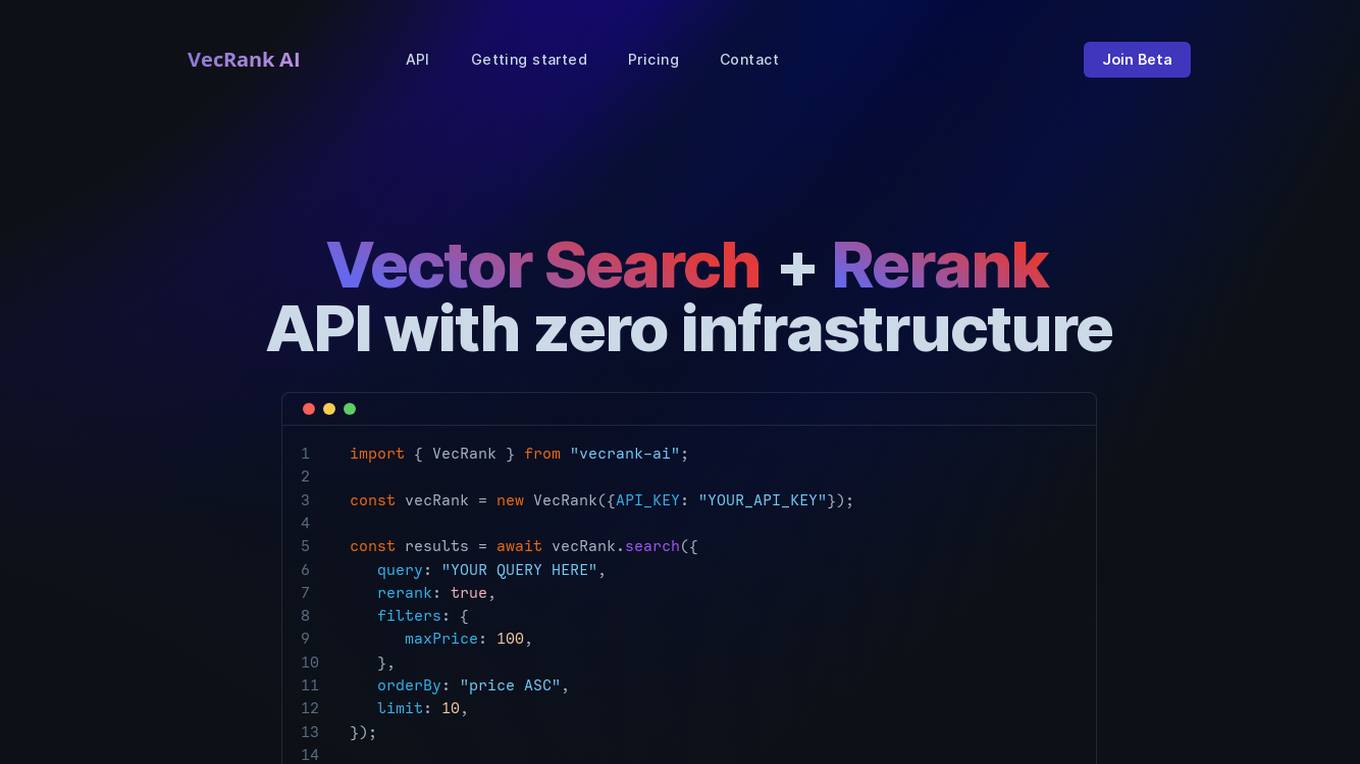
VecRank
VecRank is an AI-powered Vector Search and Reranking API service that leverages cutting-edge GenAI technologies to enhance natural language understanding and contextual relevance. It offers a scalable, AI-driven search solution for software developers and business owners. With VecRank, users can revolutionize their search capabilities with the power of AI, enabling seamless integration and powerful tools that scale with their business needs. The service allows for bulk data upload, incremental data updates, and easy integration into various programming languages and platforms, all without the hassle of setting up infrastructure for embeddings and vector search databases.
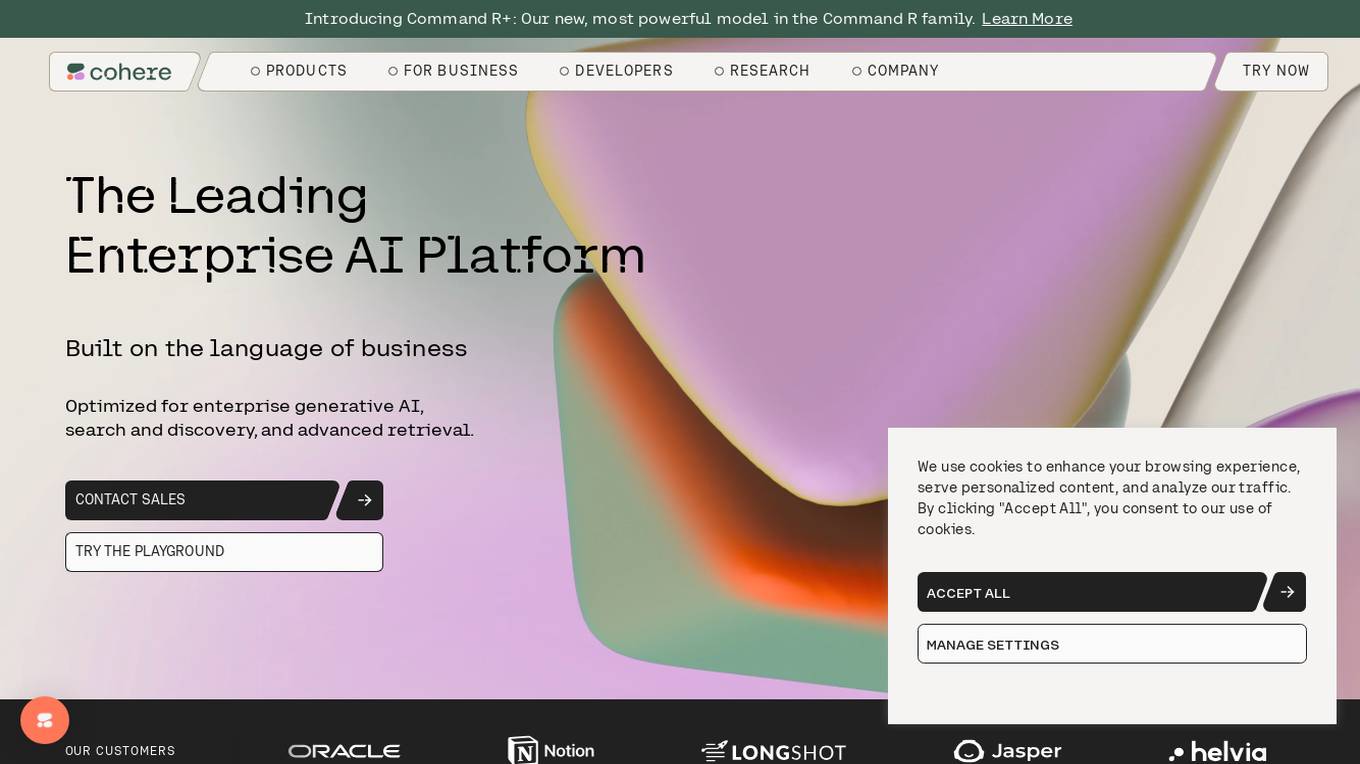
Cohere
Cohere is the leading AI platform for enterprise, offering products optimized for generative AI, search and discovery, and advanced retrieval. Their models are designed to enhance the global workforce, enabling businesses to thrive in the AI era. Cohere provides Command R+, Cohere Command, Cohere Embed, and Cohere Rerank for building efficient AI-powered applications. The platform also offers deployment options for enterprise-grade AI on any cloud or on-premises, along with developer resources like Playground, LLM University, and Developer Docs.
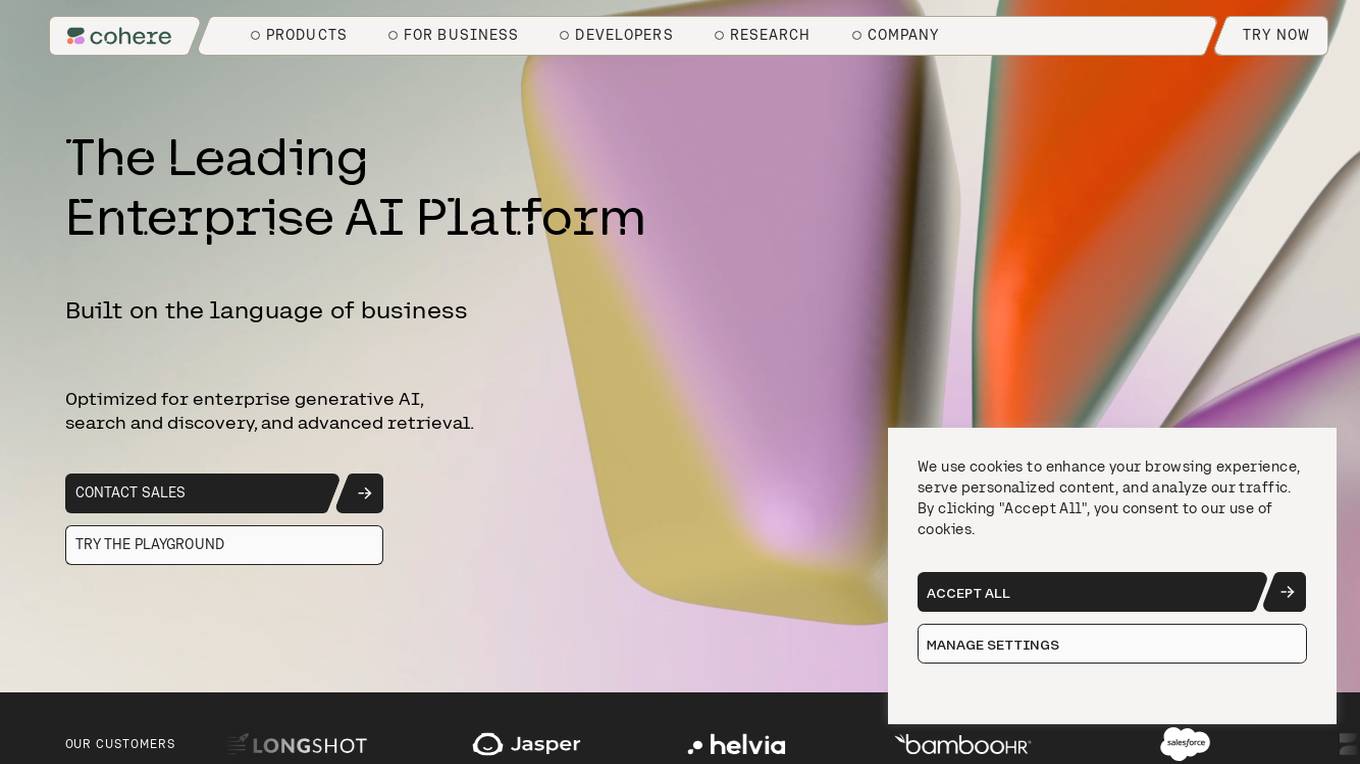
Cohere
Cohere is the leading AI platform for enterprise, offering generative AI, search and discovery, and advanced retrieval solutions. Their models are designed to enhance the global workforce, empowering businesses to thrive in the AI era. With features like Cohere Command, Cohere Embed, and Cohere Rerank, the platform enables the development of scalable and efficient AI-powered applications. Cohere focuses on optimizing enterprise data through language-based models, supporting over 100 languages for enhanced accuracy and efficiency.
2 - Open Source AI Tools
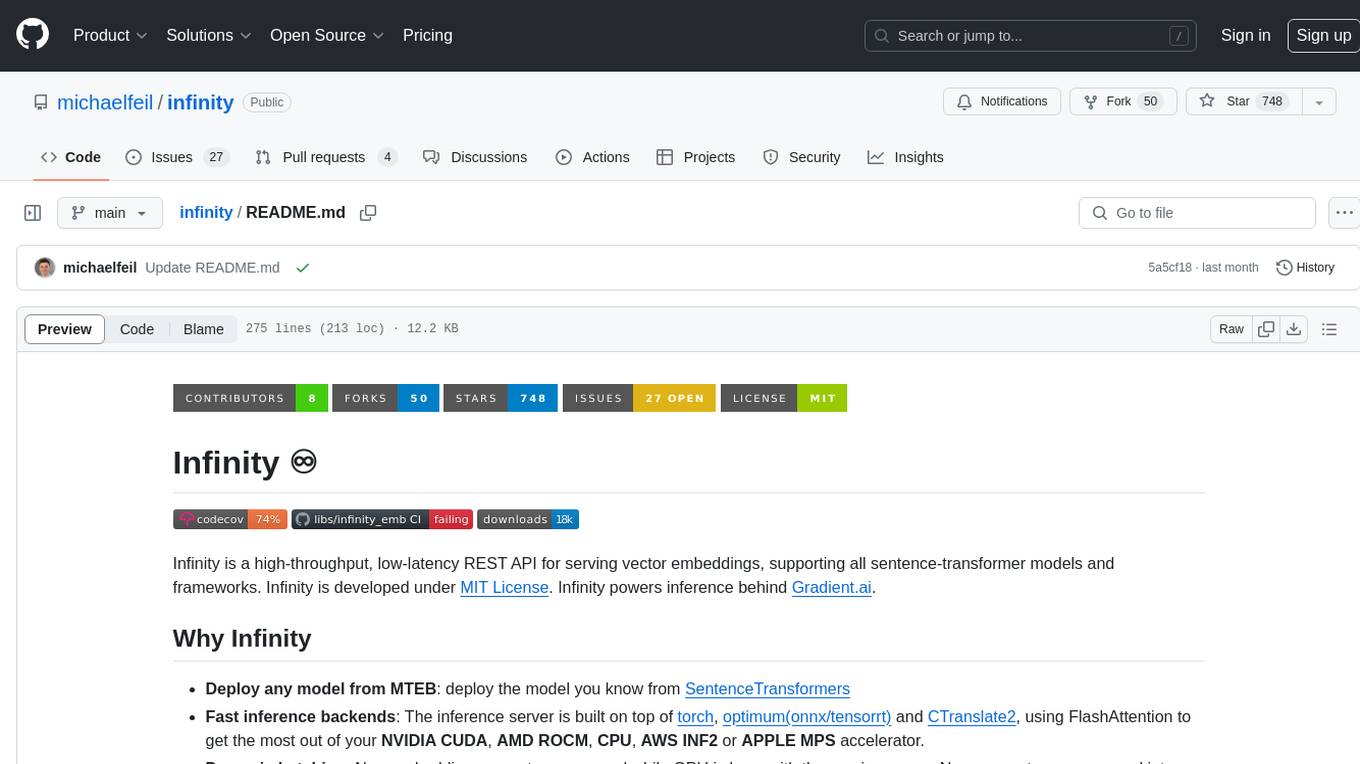
infinity
Infinity is a high-throughput, low-latency REST API for serving vector embeddings, supporting all sentence-transformer models and frameworks. It is developed under the MIT License and powers inference behind Gradient.ai. The API allows users to deploy models from SentenceTransformers, offers fast inference backends utilizing various accelerators, dynamic batching for efficient processing, correct and tested implementation, and easy-to-use API built on FastAPI with Swagger documentation. Users can embed text, rerank documents, and perform text classification tasks using the tool. Infinity supports various models from Huggingface and provides flexibility in deployment via CLI, Docker, Python API, and cloud services like dstack. The tool is suitable for tasks like embedding, reranking, and text classification.
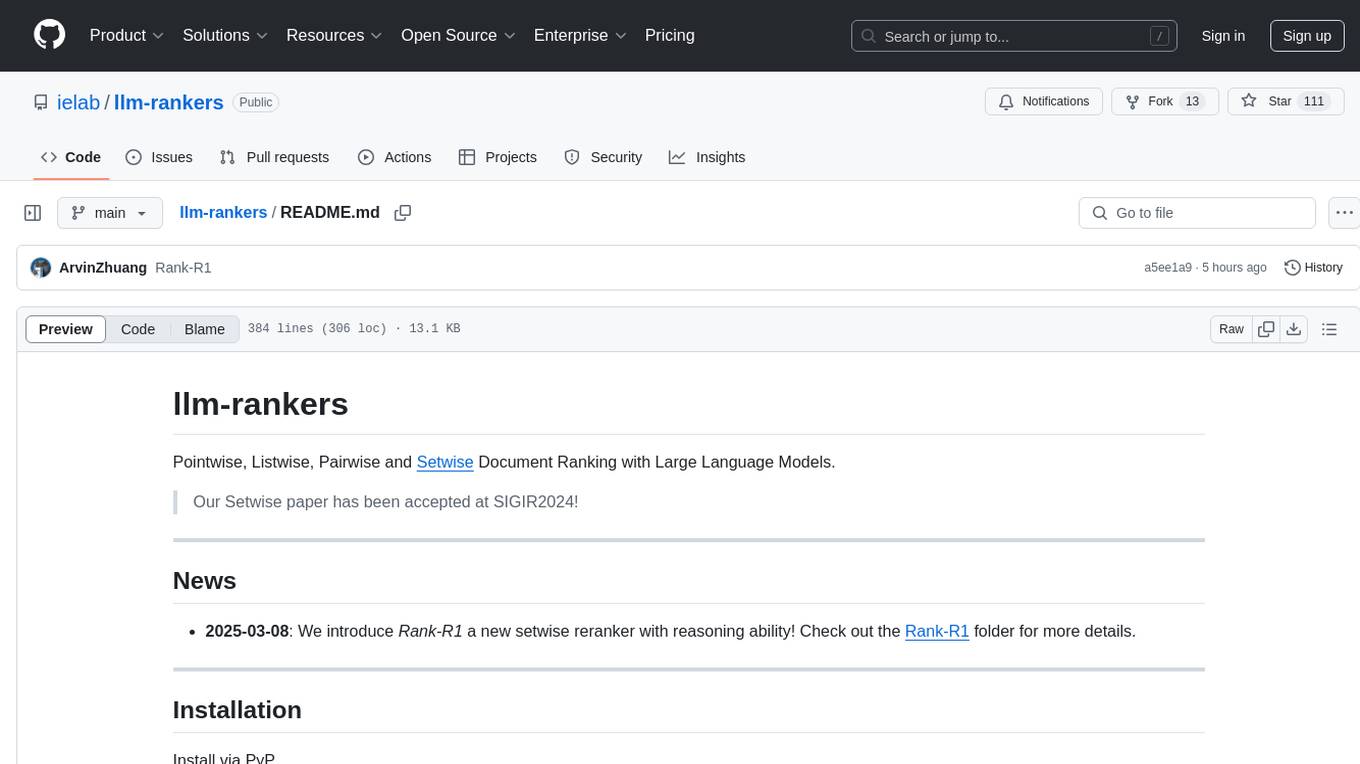
llm-rankers
llm-rankers is a repository that provides implementations for Pointwise, Listwise, Pairwise, and Setwise Document Ranking using Large Language Models. It includes various methods for reranking documents retrieved by a first-stage retriever, such as BM25. The repository offers examples and code snippets for using LLMs to improve document ranking performance in information retrieval tasks. Additionally, it introduces a new setwise reranker called Rank-R1 with reasoning ability.